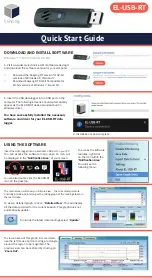
11
This document is written and published by ShockWatch, Inc. All rights reserved.
USER MANUAL
HPT (HUMIDITY PRESSURE TEMPERATURE) SENSOR
The HPT sensor measures humidity, pressure and temperature. It enables any version of the ShockLog 298 to
monitor an extended range of environmental factors. The HPT meets the requirements for IP30 and can operate at
temperatures between -40 and +85°C. An optional extension cable is available for applications where the HPT must
be mounted remotely from the recorder. A bulkhead adapter is required when using the extension cable.
SHOCKLOG 298 TILT AND ROLL
The Tilt & Roll feature extends the monitoring capabilities of the ShockLog 298 beyond impact and vibration to
include tilt & roll. Users have the capability to monitor and measure the entire physical environment during a journey
or storage period. The ShockLog software includes two additional time slot graphs in order to provide a graphical
representation of the tilt and roll activity recorded. The additional graphs show the Tilt (front to back) and Roll (left
to right) movement of the unit and are represented as degrees of movement. The data is recorded and displayed in a
range of ±180°. Reaching 180° indicates full turn over.
SHOCKLOG 298 GPS
The ShockLog 298 is available with a built-in GPS receiver that records the GPS position of the unit at every summary
interval and when an event occurs. The receiver / antenna must have line of site visibility to GPS satellites to record
such information.
Data files with GPS information will be displayed with additional columns in both the summary table and the events
table. The additional columns include:
• GPS Time and Date
• Globe icon (Link to Google Maps)
• GPS Latitude
• GPS Velocity
• GPS Longitude
• GPS Course (COG)
SHOCKLOG H/T SENSOR
The HT sensor measures humidity and temperature. It enables any version of the ShockLog 298 or 248 to monitor an
extended range of environmental factors.
SHOCKLOG 298 RF
The ShockLog 298 is available with a built-in Zigbee RF module. This system allows a user to transmit setup
information to the ShockLog and receive full data downloads from the ShockLog. An RF base station connected to a
PC running the ShockLog software allows for wireless communication between the ShockLog and PC.






































